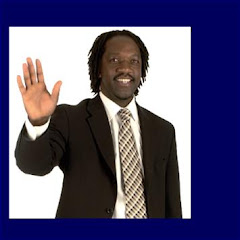THE deaf community has an eloquent spokesman at this year’s political theatre festival, Mayfesto, writes Mark Fisher for the Scotsman (01/05/12).
Ramesh Meyyappan is telling me about his early childhood in a village near Chennai in southern India. He can’t tell me the name because it is a very long word. He gestures with his hand to indicate how long. For most people, length would not be an obstacle, but Meyyappan has never heard the word spoken out loud and cannot spell it. He is deaf and so the place he lived until the age of five looks to him like little more than a long series of letters.
Today, he’s talking to me through an interpreter, but it’s not the only way he communicates. The actor, now based in Glasgow, is a vibrant presence on stage and equally animated off. He talks not only with sign language but with a vivid sequence of facial expressions, as if he’s not just telling his stories but acting them out.
It’s consistent with the imagistic storytelling he brings to Snails and Ketchup, a one-man show based on Italo Calvino’s The Baron in the Trees, revived for Mayfesto at Glasgow’s Tron Theatre. He describes it as neither mime nor dance, but as visual storytelling for everyone. “In my work, it’s not deaf or hearing, it’s just an audience that enjoys theatre. It’s about a visual vocabulary not a sign-language vocabulary.”
I ask if it’s a cliché to say people who are deprived of one sense often compensate by developing one of their remaining senses. In his own case, he has no way of knowing the reason, but he certainly has a heightened awareness of sight.
“I have always thought visually,” he says. “I think visually and I want to communicate visually. Some folk say I’ve got a good eye for detail. I can feel little bits of vibrations and sense a bit of what’s behind, but I’ve got to work harder with my eyes to see everything, and I work on what I can see.”
Given the choice, Meyyappan would rather be talking about art than disability. He doesn’t want to be defined by his deafness or pigeonholed into a special performance category. All the same, Snails and Ketchup has been programmed as part of Mayfesto, a festival of political theatre and he admits there’s a political dimension to what he does. It’s not in the story in itself – it’s about a boy who escapes his dysfunctional family by taking to the trees – but in the very fact of having a deaf performer on stage.
“I don’t necessarily see Snails and Ketchup as being political, but I know all artists have a sense of having a voice and so have something political to say.
“I’m interested in telling a personal story, something that’s accessible and something where there’s an audience of both deaf and hearing, because that doesn’t always happen. Deaf and hearing are two insular worlds and there are not often times for them to merge. From my point of view, I’m not saying anything political, but the work is involved in bringing communities together.”
Perhaps the greatest political message is embodied by Meyyappan himself, living proof of the power of positive thinking. Any actor needs extra reserves of confidence to survive in such a competitive business, but doing that while tackling the prejudice of the hearing world is doubly impressive.
Taking inspiration from his forward-thinking mother, who moved her three children (two of them deaf) to Singapore for better opportunities, Meyyappan exudes optimism. “I’ve got to be very positive,” he says. “There have been lots of obstacles in the way – personal life, work life – but if you become negative, you don’t get anywhere.”
Having no artistic background, his family assumed he would get a job in something like IT, but as a teenager, he was inspired by Hi! Theatre, a company dedicated to deaf performers, and he resolved to become an actor. After gaining experience on the stage in Singapore, both with Hi! and a hearing theatre company, he made his directorial debut with a visual version of Macbeth. Wanting a qualification, he left Singapore in 2000 to study for a degree in performing arts at the University of Liverpool, eventually moving to Glasgow with his Scottish wife.
He’s too modest to call himself a pioneer, but that’s how Meyyappan is regarded by deaf artists internationally. True to form, once he realised theatre for the deaf was less developed in Scotland than elsewhere in Europe, he set about trying to change things.
Encouraged by organisations such as Tramway, the National Theatre of Scotland and the Royal Conservatoire of Scotland, he is increasingly confident about the future.
“The Scottish deaf community are fairly insular and don’t quite grasp what’s going on in the arts within the international deaf community. They don’t have that knowledge, so they’re a little bit behind. I’m surprised, because the international deaf theatre community is very wide – they work with a lot of hearing companies and with deaf artists, and they look for ways to make it possible.
“Here in Scotland, there are great opportunities for crossover audiences because of the physical theatre stuff that’s going on and the openness of the theatre community.
“There’s a lot of excitement here in terms of what can be possible on stage. The deaf community haven’t engaged with that yet, but the hearing community in Scotland are definitely interested in being open and working with deaf and disabled artists, doing quality work that’s not patronising.”
• Snails and Ketchup is at the Tron Theatre, Glasgow, 1-2 May. Mayfesto runs until 19 May.





